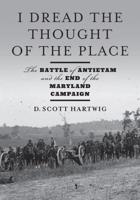Publisher's Synopsis
Little if anything is written about the -Three Month Men- that answered President Lincoln's clarion call for 75,000 loyal militia volunteers after the insurgent Confederate government attacked and took Fort Sumter on April 12, 1861. Few also appreciate how vulnerable Washington D.C., the nation's capital, was to rebel capture, especially after the Commonwealth of Virginia, which understandably refused to provide troops to smash the rebels, joined the Southern Confederacy. And Maryland threatened to do so also. Washington, D.C., the Federal capital, was between them. At the time, Washington was defended by a mere handful of U.S. Army Regulars, Marines, and Navy personnel, as well as some district militia volunteers. And because the rebel South controlled many of the arms and equipment from the old army, it actually had the upper hand and could have, if it wanted to, taken Washington, D.C. and Maryland, more than likely forcing the Lincoln administration and the U.S. Congress to accept Southern independence. The closest loyal state to the Federal capital, other than tiny Delaware which was more on the fence than not in the early months of the war, was the Commonwealth of Pennsylvania. From April to July 1861, Pennsylvania supplied a whopping twenty-five regiments of infantry, one company of artillery, one company of cavalry, and one company of mounted rangers to help stabilize Washington, D.C. and the border between Maryland and Virginia, retaking Harper's Ferry, Virginia, and keeping Maryland soundly in the Union column. To revive interest in this lost campaign, which was fought between the fall of Fort Sumter on April 12, 1861 and the battle of Bull Run (July 21, 1861), I have fleshed out several participants of the Army of Pennsylvania, the capital's primary defender, namely Capt. Emlen Franklin of Company F, 1st Pennsylvania, and the army's commander, Maj. Gen. Robert Patterson, a veteran of the War of 1812 and the War with Mexico. In so doing, I have combined my historical knowledge with my combat experiences in Fallujah, Iraq, as an Iraqi Army advisor from 2005-06, to try to bring the campaign of the Army of Pennsylvania and the defense of the capital more to life for the average reader by using Miles, Patterson, and the others as vehicles of historical fiction. I hope you enjoy the book and are inspired to read more about the early phases of the Civil War, including the battle of Bull Run/First Manassas.








